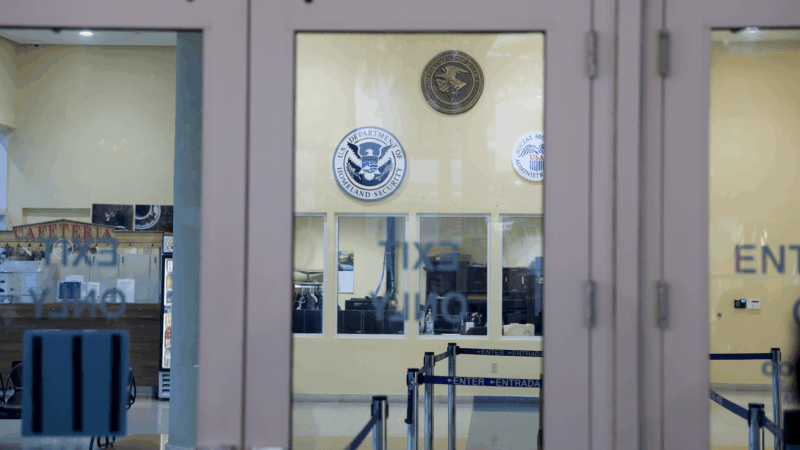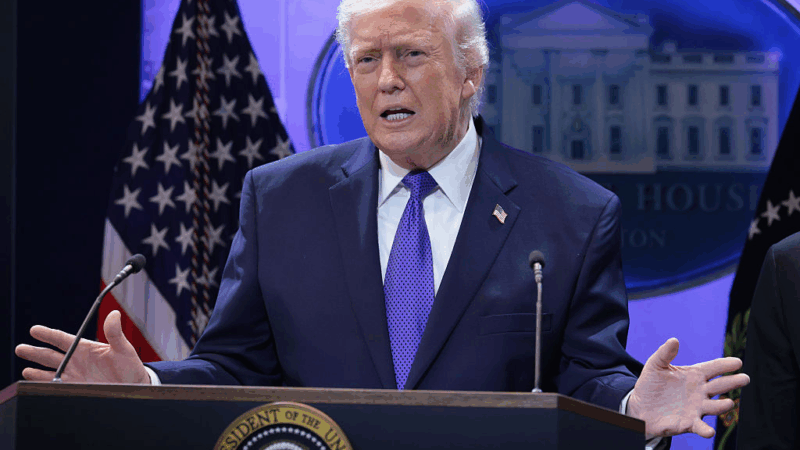U.S. charges Cambodian tycoon in massive alleged cryptocurrency scam
The U.S. government has seized bitcoin worth nearly $15 billion and charged a joint U.K.-Cambodian businessman, Prince Holding Group Chairman Chen Zhu, with wire fraud and money laundering. The Justice Department says the bitcoin is currently in U.S. government custody and calls the seizure the “largest forfeiture action” in the department’s history.
In an indictment unsealed on Tuesday in federal court in Brooklyn, N. Y., prosecutors allege that Chen and unnamed co-conspirators exploited forced labor at cyber scam centers in Cambodia, bilking would-be investors out of billions of dollars, using some of the proceeds to purchase yachts, jets, even a Picasso.
Chen remains at large. If found — and convicted — he faces up to 40 years in prison.
The indictment says people held against their will in the compounds were forced to engage in fraudulent investment schemes, also known as “pig butchering” scams that stole billions from unsuspecting investors around the world. Pig butchering is a term that refers to gaining prospective victims’ trust gradually before finally stealing their money.
U.S. officials say the multinational Prince Holding Group is a front for what the Justice Department calls one of Asia’s largest transnational criminal organizations.
“Today’s action represents one of the most significant strikes ever against the global scourge of human trafficking and cyber-enabled financial fraud,” said Attorney General Pamela Bondi and Deputy Attorney General Todd Blanche in a statement. “By dismantling a criminal empire based on forced labor and deception, we are sending a clear message that the United States will use every tool at its disposal to defend victims, recover stolen assets, and bring to justice those who exploit the vulnerable for profit.”
A statement from Prince Bank in the capital, Phnom Penh issued a statement Wednesday, saying, in part:
“The actions of the Office of Foreign Assets Control of the U.S. Department of the Treasury (OFAC) will not affect the bank’s ability or operations in Cambodia… The bank is closely monitoring developments and will continue to manage all customer relationships with diligence and transparency.”
Also on Tuesday, U.S. and British authorities imposed sanctions and seized assets of Chen’s company, with the Treasury Department declaring it a transnational criminal organization.
Last year, American citizens lost more than $10 billion to such Southeast Asia based scammers, according to the Treasury Department, a 66% increase over the year before. The majority of the scam compounds are based in Cambodia and Myanmar, but are run, analysts say, mainly by Chinese criminal organizations.
“This coordinated action between the U.S. and the U.K. represents the most significant step taken to present to dismantle the Chinese transnational crime groups behind Southeast Asia’s rising scam economy,” says Jason Tower, a senior analyst at the Global Initiative Against Transnational Organized Crime.
“The sanctions combined with the U.S. indictment and the U.K. seizures send a strong signal to the Chinese crime groups and to the corrupt elites and armed actors openly backing them in Cambodia, Myanmar and beyond that this form of criminal activity will no longer be tolerated.”
On the other hand, Tower says, while that “strong signal” may be heard, the criminal organizations behind these scam centers have proven very adaptable.
“We have already seen the crime groups adapt repeatedly to earlier enforcement actions taken by China, which ultimately resulted in the scams going global,” he says.
“They have also adapted to responses at the regional level, including to moves taken by Thailand to crack down by cutting off access to telecommunications, electricity and other resources. This has involved using satellite internet services, solar power and generators drawn from across Myanmar.”
Similarly, he says, earlier crackdowns on money laundering operations have also been easily undermined by the criminal groups, “which have rapidly stood up new online payment services and new channels to coordinate their activities on Telegram.”
Still, he says, the joint action by the U.S and the U.K sends a strong signal ahead of the summit of the Association of Southeast Asian nations–or ASEAN- later this month in Kuala Lumpur, Malaysia, that ASEAN now faces pressure from “many different directions.”
Trump to raise global tariffs. And, most say the state of the union is weak, poll says
President Trump says he is raising global tariffs to 15%. And ahead of the president's address tomorrow, most Americans say the state of the union is not strong, according to an NPR poll.
U.S. has a quarter fewer immigration judges than it did a year ago. Here’s why
The continued drain of personnel from the already strained immigration court system has contributed to depleted staff morale, mounting case backlogs — and floundering due process.
Poll: Most say the state of the union is not strong and the U.S. is worse off
Ahead of the State of the Union address on Tuesday, evidence continues to mount that President Trump is facing political headwinds.
The owners want to close this Colorado coal plant. The Trump administration says no
The Trump administration has ordered several coal plants to keep operating past their planned retirement, part of a larger effort to boost the coal industry. Two Colorado utilities are pushing back.
Influencers are promoting peptides for better health. What’s the science say?
The latest wellness craze involves injecting these molecules for athletic performance, longevity and more. Scientists say the research isn't keeping pace with the health claims.
Mexico fears more violence after army kills leader of powerful Jalisco cartel
School was canceled in several Mexican states and local and foreign governments alike warned their citizens to stay inside following the army's killing of the leader of the Jalisco New Generation Cartel, Nemesio Rubén Oseguera Cervantes, "El Mencho," and the violence it spurred







